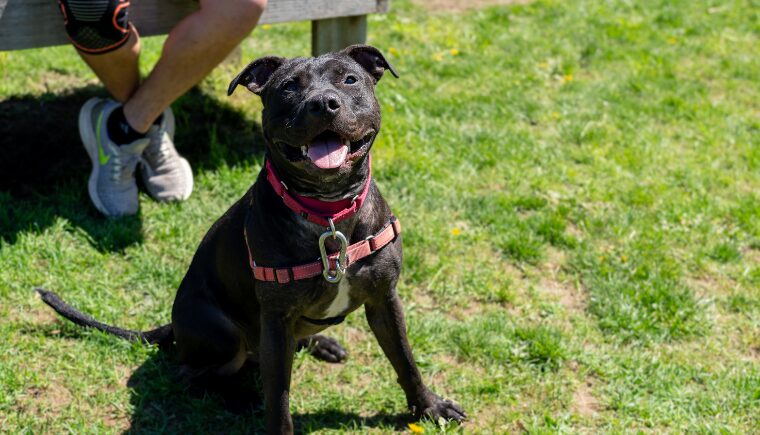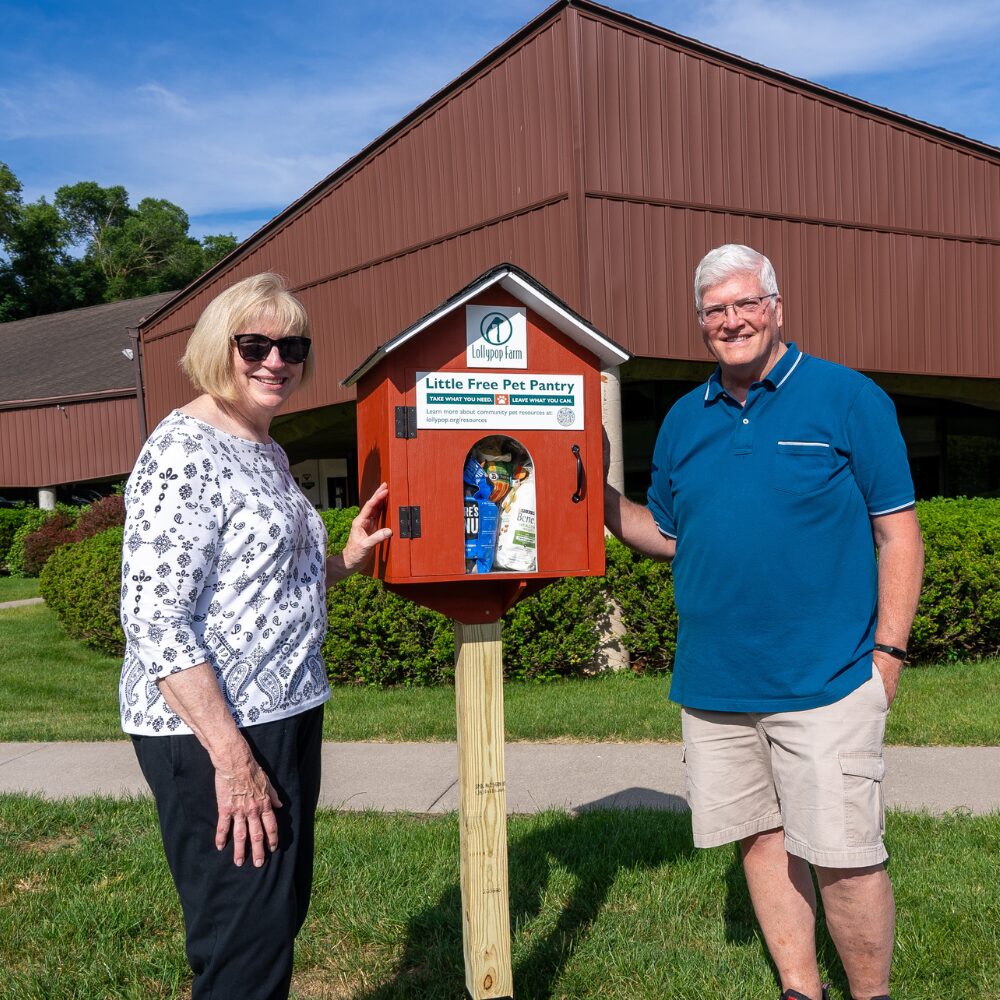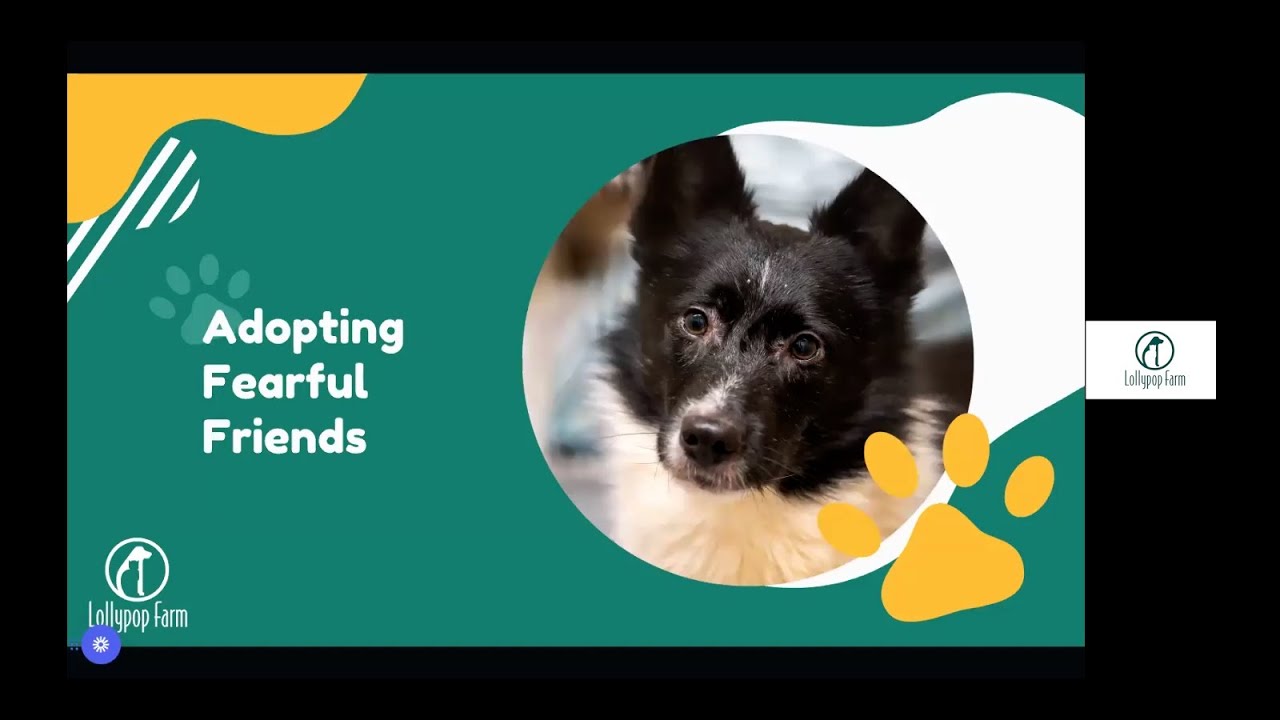Summertime is here, full of hot weather, fun in the sun, and pool parties. Lollypop Farm wants to keep you and your pet safe this summer with these extra cool tips.
Too Hot for Spot
When temperatures outside increase, a hot car can become a death trap for your pet. Temperatures inside a car rise quickly. What might start as an innocent and quick “run into the store” could be dangerous to your pet when delayed by everyday problems like long lines. Some may think it’s safe to leave a pet in the car with the air conditioning, but accidents can happen. Many new vehicles automatically turn off while running idle for too long. It’s rarely worth the risk to your pet.
In high-temperature environments, dogs cannot sweat to regulate their body temperature like humans. Instead, they pant heavily, which can exasperate the symptoms of heat exhaustion. Add in a layer of fur, and this can quickly lead to a potentially fatal situation. When a dog’s internal temperature reaches above 103°F, they can experience heat exhaustion. At around 106°F can lead to organ failure or even death. Keep your pet safe this summer, and avoid hot cars!
If you see a pet left inside a hot car, call 911 or Lollypop Farm Humane Law Enforcement immediately. Acting quickly may save that dog’s life. Take the pledge never to leave your pet in a hot car.
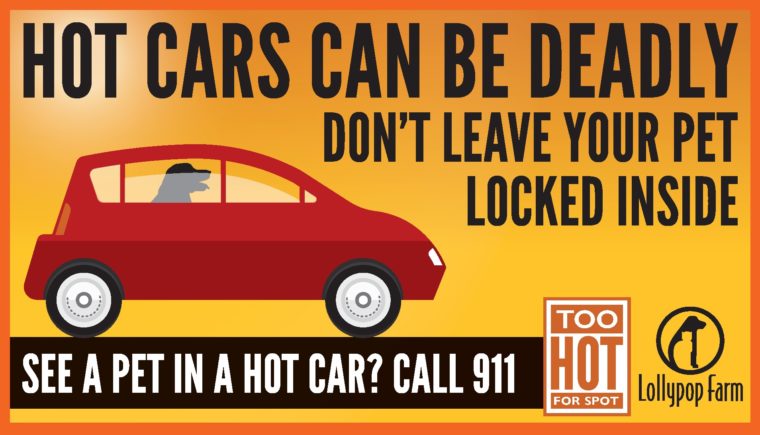
Know and Watch Out for Signs of Heat Exhaustion like:
- Dark red, blue, or discolored gums
- Extreme fatigue
- Excessive panting to trouble breathing
- Muscle tremors to seizures
- Increase in body temperature, which you may feel with your hands on less furry areas
- Collapsing
- Vomiting/diarrhea
- Racing heartbeat
Hot Day How-to
When the temperature outside rises, take precautions for you and your pet to avoid heat exhaustion. Make sure you both have access to shade and plenty of cool water. Take breaks whenever possible, and try to keep walks short. Find a trail or area with lots of shade so the sun isn’t beating down on you.
Watch for signs from your dog that it may need a break, like slowing down or panting. Knowing the signs of heat exhaustion will also help (see our list above) so you can get your dog to an emergency veterinarian as fast as possible.
Hot Pavement Dangers
Black roadways can retain a lot of heat during the summer months. Test the pavement with your hand before letting your pet walk on it. If it’s too hot for your hand, it’s too hot for your pet’s feet! If the pavement is hot, consider walking along grassy routes or nature trails, like the one at Lollypop Farm! If you live in an area with lots of black pavement, consider going to a park or grassy area instead.
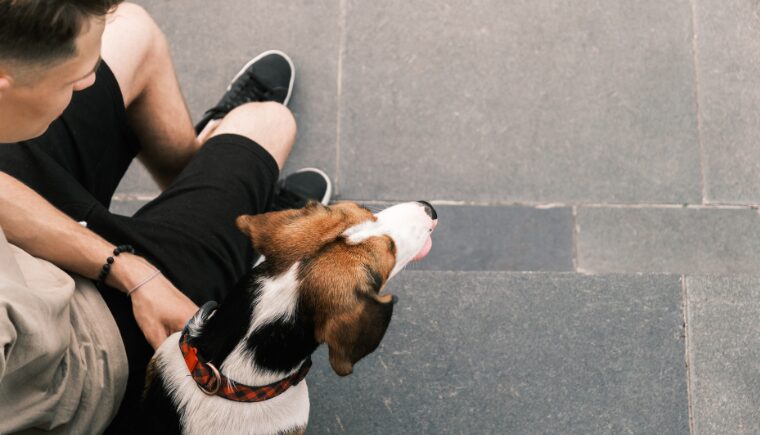
Water Safety
Pools are a great way for people and pets to cool down in the heat of the summer. The majority of dogs can swim and love it, but some are not good swimmers or need a helping hand with learning. Once they have mastered the water, keep a watchful eye as a precaution and ensure they can get out of it whenever needed. Make sure your pool is covered and has fencing around it when not in use to prevent your pet or any local wildlife from drowning by falling in and getting stuck. Also be careful of pools that only have ladder access as animals can fall in and not be able to get back out. Take the ladder off and cover the pool when not in use to avoid any accidents.
If you are boating, make sure everyone on board has a life vest, including your pet. Even if your pet can swim, a swim in the middle of a big lake can easily lead to exhaustion and drowning. Make sure all life vests fit so they work properly. Plus, you can get little mermaid or shark vests for your pet so that they can be super cute AND safe!
Party Animals
Summer parties are fun and full of delicious food! Make sure food and alcohol are kept out of reach of pets. Bones, corn cobs, apple pits, or other foods can create blockages. Ensure those foods and garbage are away from a pet’s reach. Some foods are also toxic to pets, so be careful! Visit the ASPCA’s poison control website for more information on toxic foods.
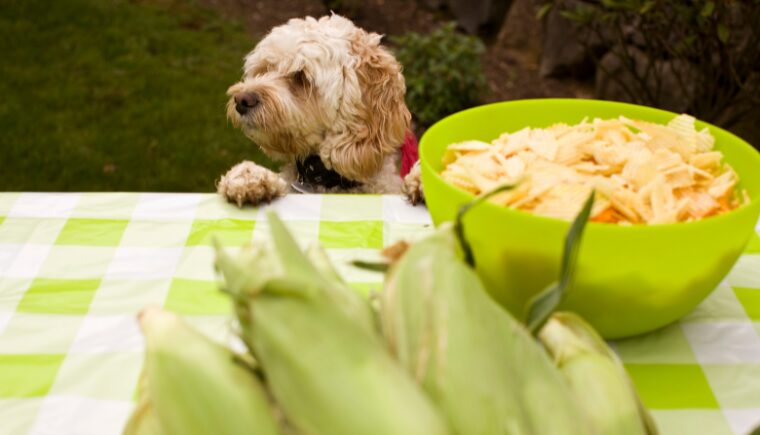
In the Garden
Veterinary medicine can be expensive.
Does your pet love to chew on plants or eat your veggies from the garden? Some plants are toxic. Make sure you know what plants to keep out of your pet’s reach. Are you unsure what plants or foods your animal can or can’t eat? Visit the ASPCA’s poison control website for more information. Always store fertilizers, insecticides, or other outdoor products out of reach of your pets. Read any instructions on pet safety for garden products as well. Some will indicate that pets should stay away for a specified time.
Check the Chip
Summer is a great time to ensure your pet’s microchip has the correct information. Many pets go missing during the warm summer when they spend more time outside, on walks, or in new places. A pet can slip away at a moment’s notice, and a microchip can help quickly reunite you and your pet if they are ever lost. Did you know that dogs and cats adopted from Lollypop Farm are microchipped? All you need to do is update the information at the time of adoption!
One of the most common times a pet may run is during fireworks season. Consider keeping your pets indoors once it gets dark, playing music, or having a TV on to help with noise. Keeping window coverings closed can also help. If your pet is very frightened during fireworks (or thunderstorms), talk to your veterinarian about your options for medications or other methods of keeping your pet calm and stress-free.
We at Lollypop Farm hope you and your pet have a fun summer!
